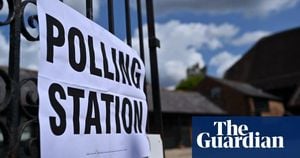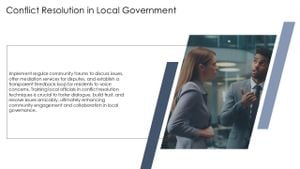Taiwan’s President Lai Ching-te is currently on his first official overseas trip since taking office, and it’s sparking significant reactions, particularly from China. After kicking off his Pacific tour with a stop in the United States, Lai is visiting the Marshall Islands, one of Taiwan's few remaining formal allies. Relations between Taiwan and China are ever taut, especially with Lai at the helm, as Beijing views him unfavorably, labeling him as a "separatist."
During his brief stay, which commenced on Tuesday, Lai met with Marshall Islands President Hilda Heine, where they discussed matters strengthening bilateral ties and mutual support. This slim yet significant diplomatic relationship continues to irk Beijing, which accuses Taipei of undermining its sovereignty. The Marshall Islands, one of only twelve countries maintaining diplomatic recognition of Taiwan, has reaffirmed its commitment to remain such, stating intentions to support Taiwan’s representation at international agencies.
Lai’s endeavor is more than just symbolic; it showcases Taiwan’s desire to reinforce ties with its allies, especially against the backdrop of increasing Chinese military threats. The President emphasized the shared values of freedom and democracy with Heine. Meanwhile, China has fired back at Lai’s diplomatic engagements, asserting its defense of national sovereignty and promising retaliation should Taiwan continue its perceived independence drive.
Before arriving at the Marshall Islands, Lai had been in Hawaii, where he was hosted by former House Speaker Nancy Pelosi, engaging discussions centered on the military threats posed by China. The visit to Hawaii, warmly welcomed and broadly covered by local media, only served to heighten tensions with Beijing, which condemned the meeting as provocation. The Chinese government’s response has been swift and fierce, with calls for the U.S. to cease its support for “Taiwan independence separatist forces.”
During his time abroad, Lai also announced plans for Taiwan to extend economic support through preferential loans aimed at bolstering the state-owned Air Marshall Islands and venturing projects to improve food security. Such initiatives reflect Taiwan’s history of providing development finance across the Pacific and aim to cement its bonds with these nations.
Chinese military movements are another significant aspect of the geopolitical turmoil surrounding Lai’s tour. Taiwanese defense officials have expressed their vigilance concerning Chinese maneuvers, noting the possible commencement of military drills coinciding with Lai’s trip. Sources indicate heightened Chinese naval activity, with reports of over 40 military vessels mobilized around Taiwan, including the notable presence of the aircraft carrier Liaoning. Such displays raise alarm bells within Taiwan, especially amid recent military exercises by China meant to demonstrate its capabilities of blockade and potential action against Taiwan.
Analyzing the military backdrop, intelligence assessments indicate the likelihood of increased war games from China, leading to speculation about the nature of drills typical of preparing for combat scenarios. Reports suggest China’s military has made advancements, such as night operations and innovative strategies, which are necessary for executing complex maneuvers.
Despite the rising military tensions, Lai has reiterated his stance of wanting peaceful relations with Beijing. He maintains open channels for dialogue, stressing the urgency for collaboration to prevent war. His statements reflect the precarious balance Taiwan seeks to strike—pursuing international presence without provoking outright conflict.
Concurrently, U.S.-Taiwan relations appear to be solidly embedded, with arms sales remaining firm as Washington continues its backing. Most recently, the U.S. approved the sale of military supplies valued at approximately $385 million; these arms are pivotal for Taiwan's defense strategy, enhancing the strength of its military presence amid threats from China.
Lai’s Pacific tour embodies more than just diplomatic visits; it encapsulates Taiwan’s persistent efforts to assert its place on the global stage, albeit shadowed by the looming threat of Chinese aggression. His presidency and this tour are pivotal as they showcase Taiwan’s firm resolution to uphold its sovereignty and the desire for collaborative partnerships, all under the watchful eye of regional tensions.
With each stop on his trip, be it the United States or the Marshall Islands, Lai is not merely attending meetings; he’s reinforcing Taiwan’s narrative of resilience and autonomy, aiming to gather support against the backdrop of relentless pressures from Beijing. The outcomes of this trip could very well influence Taiwan's future diplomatic and military strategies as it navigates through this complex web of international relations.



